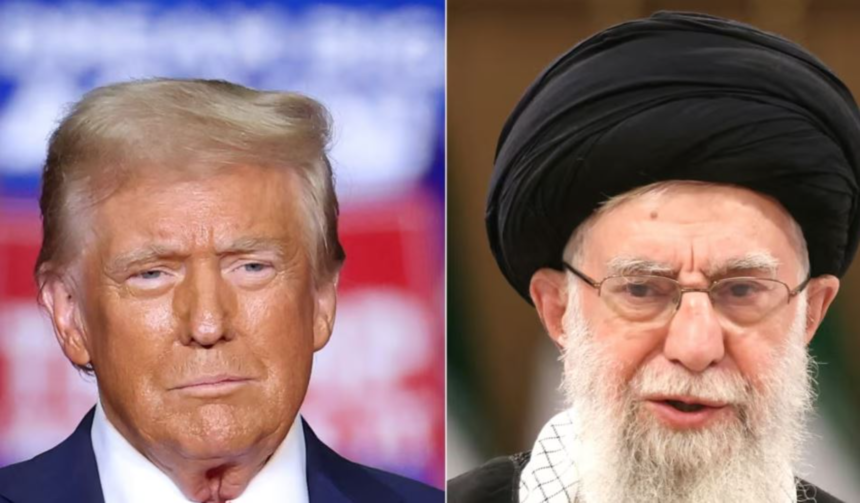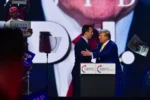U.S. President Donald Trump announced that he sent a letter to Iran’s Supreme Leader, Ayatollah Ali Khamenei, proposing discussions to reach an agreement regarding Tehran’s nuclear program.
In an interview with Fox News on March 6, Trump stated that the letter was sent “yesterday.”
“I wrote him a letter saying, ‘I hope you’ll negotiate because if we have to choose the military option, it will be a terrible thing,'” Trump said.
Parts of the interview were released on March 7, but the full interview is scheduled to air on March 9.
“I prefer to negotiate a deal. I’m not sure everyone agrees with me, but we can reach an agreement that would be as good as a military victory,” Trump said. “But time is running out. Something will happen.”
Later in statements made at the White House on March 7, Trump again expressed hope that a deal could be reached soon.
“We cannot allow them to possess nuclear weapons,” he said, adding, “Something will happen very soon.”
“We hope to have a peace deal,” he said, likely referring to a peaceful resolution to the tensions surrounding Tehran’s nuclear program.
“I’m saying it’s better to have a peace deal than another. But others will solve the problem,” he added.
During his first presidential term, Trump withdrew the U.S. from the 2015 nuclear agreement between Iran and world powers and reinstated sanctions that had been lifted under the conditions set by the agreement.
Last month, Khamenei said he opposed direct talks with Trump, stating that Trump cannot be trusted after withdrawing from the nuclear deal.
After withdrawing from the deal in 2018, Trump welcomed an offer from then-Japanese Prime Minister Shinzo Abe to mediate and in 2019 asked Abe to deliver a letter to Khamenei. The Iranian leader rejected the letter, stating it “was not worth responding to.”
Since returning to the White House in January, Trump has resumed his “maximum pressure” campaign, which was central to his policy towards Iran during his first term. He has stated that this approach aims to reduce Iranian oil exports to “zero.” Experts have said that the U.S. is unlikely to fully stop Iran’s oil sales but could significantly reduce them.
Iranian Foreign Minister Abbas Araqchi, in a statement to AFP, insisted that Iran’s nuclear program “cannot be destroyed” through military action and rejected the possibility of talks with Trump as long as the “maximum pressure” campaign is in effect, reports REL.
Iran has accelerated its nuclear program since the U.S. withdrew from the 2015 deal, and it is now enriching uranium to 60% purity. Experts have said that Iran is close to achieving the technological capability to enrich uranium to 90% purity, which is considered the level necessary for producing nuclear weapons.
Tehran insists that its nuclear program is peaceful and that it has no plans to create weapons. However, the International Atomic Energy Agency has expressed “serious concerns” about the speed at which Iran is accumulating high-enriched uranium.







